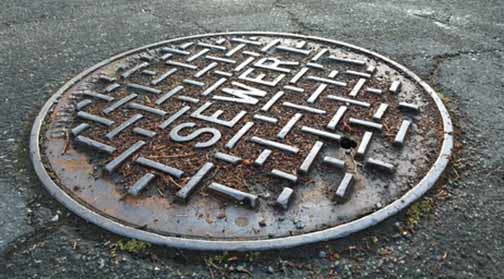This comprehensive guide will provide you with valuable information about the most frequent problems homeowners in Chicago face with their sewer lines and the necessary steps to address them. Whether you are a resident of Chicago or simply interested in learning more about sewer line issues, this article is for you.
Why Sewer Line Issues Are Common in Chicago
Chicago, known for its magnificent architecture, rich history, and vibrant culture, also faces specific challenges when it comes to sewer line problems. Understanding the factors contributing to these issues is crucial in order to implement effective solutions.
Firstly, the age of many buildings and neighborhoods in Chicago plays a significant role. Older homes often have sewer lines that have deteriorated over time, making them more susceptible to blockages and leaks. Additionally, Chicago’s extreme weather conditions, including freezing temperatures, heavy rainfall, and rapid temperature changes, can put a strain on sewer lines, leading to various problems.
Moreover, the expansive clay soil found in certain areas of Chicago can exert pressure on sewer lines, causing them to crack or collapse. Tree roots, which thrive in Chicago’s lush green environment, can also infiltrate sewer pipes seeking moisture, further exacerbating the issues.
Common Sewer Line Issues
In this section, we will explore the most common sewer line issues encountered by homeowners in Chicago:
1. Clogs and Blockages
Clogs and blockages are one of the primary concerns for homeowners in Chicago. They occur when debris, grease, and other materials accumulate in the sewer line, obstructing the normal flow of wastewater. Over time, these blockages can lead to backups, causing significant damage and health hazards.
2. Tree Root Infiltration
As mentioned earlier, Chicago’s lush green environment is a double-edged sword when it comes to sewer line issues. Tree roots are naturally drawn to the moisture inside sewer pipes, and over time, they can cause blockages and even lead to pipe damage.
3. Pipe Corrosion and Deterioration
With aging infrastructure, pipe corrosion and deterioration are common problems in Chicago. Over time, sewer pipes can deteriorate due to the harsh Chicago weather conditions, resulting in leaks, cracks, and collapsed pipes. These issues can cause sewage backups and even structural damage to homes.
4. Bellied or Sunk Pipes
Bellied or sunk pipes occur when sections of the sewer line sink into the ground due to shifting soil or other underlying issues. These low spots in the pipe can collect debris and lead to persistent clogs and blockages.
Identifying Sewer Line Issues
Recognizing the signs of sewer line issues is crucial for early detection and prompt repairs. Here are some common indicators that you may have a problem with your sewer line:
- Repeated drain clogs throughout the house
- Slow draining sinks, bathtubs, or toilets
- Unpleasant sewage odors in your yard or home
- Gurgling noises coming from drains
- Overflowing or backing up toilets
- Soggy or wet patches in your yard
If you notice any of these signs, it is essential to contact a professional plumber experienced in sewer line repairs to assess the situation and recommend the appropriate course of action.
Repairing Sewer Line Issues
When it comes to repairing sewer line issues in Chicago, it is crucial to hire a licensed and experienced plumber who specializes in sewer line repairs. Attempting to fix these problems on your own can lead to further damage and costly repairs.
The repair method chosen will depend on the specific issue identified and its severity. Here are some common repair techniques used for sewer line issues:
1. Hydro Jetting
Hydro jetting is an effective method for removing stubborn clogs and blockages in sewer lines. It involves using a high-pressure water jet to clear away debris, roots, and other obstructions, restoring normal flow.
2. Pipe Lining
For pipes with minor damages such as cracks or leaks, pipe lining can be a cost-effective solution. This technique involves inserting a flexible, epoxy-coated liner into the existing pipe, creating a new, seamless pipe within the old one.
3. Pipe Bursting
If the sewer pipe has suffered extensive damage or is beyond repair, pipe bursting may be necessary. This method involves using a specialized tool to break apart the old pipe while simultaneously pulling a new pipe into place.
4. Excavation and Replacement
In some cases, excavation and complete replacement of the sewer line may be the most viable option. This approach is typically used when the existing pipe is severely damaged, collapsed, or misaligned.
It is important to note that the repair method selected should be based on a thorough assessment by a professional plumber. They will consider factors such as the extent of the damage, the overall condition of the sewer line, and the best approach for a long-lasting solution.
Preventing Sewer Line Issues
While some sewer line issues are unavoidable, there are steps you can take to minimize the risk of experiencing problems:
- Avoid disposing of grease, cooking oils, and coffee grounds down the drain
- Use drain strainers to catch hair and other debris
- Be mindful of what you flush down the toilet (avoid flushing baby wipes, sanitary products, or excessive toilet paper)
- Plant trees and shrubs away from sewer lines to prevent root infiltration
- Consider regular sewer line inspections and maintenance to catch potential issues early on
By following these preventative measures, you can help extend the lifespan of your sewer line and reduce the likelihood of costly repairs.
In conclusion, sewer line issues are common in Chicago due to various factors such as aging infrastructure, extreme weather conditions, and tree root infiltration. Understanding the most common problems and their early signs can help homeowners take proactive measures to address these issues. It is always recommended to consult with a professional plumber experienced in sewer line repairs for an accurate diagnosis and effective solutions. By taking care of your sewer line and implementing preventative measures, you can ensure the efficient and uninterrupted flow of wastewater in your home.
